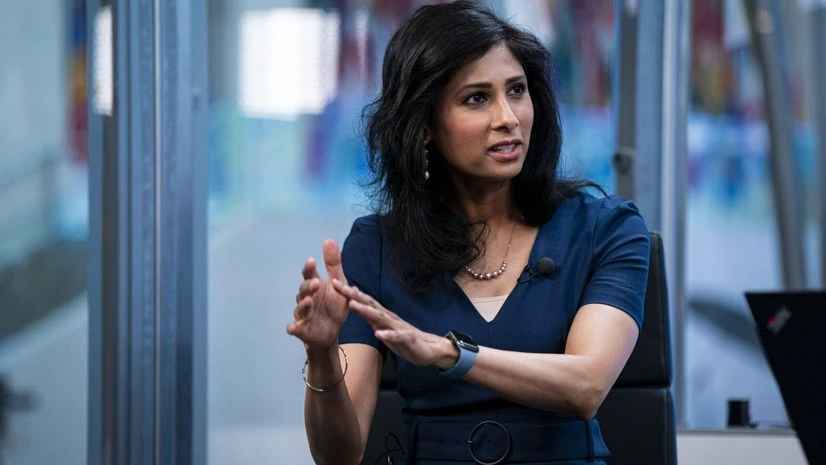By Rich Miller
A senior International Monetary Fund official suggested on Friday that the Federal Reserve alter its monetary policy framework to reflect a world of more frequent supply shocks and a greater risk of elevated inflation.
“We’re going to be hit more by supply shocks and therefore monetary policy faces much more serious trade-offs,” International Monetary Policy First Deputy Managing Director Gita Gopinath said. “We have to refine our monetary policy framework.
Speaking on an IMF panel discussion moderated by Bloomberg Television’s Tom Keene, Gopinath suggested the Fed be more wary about running the economy hot and be more willing to act pre-preemptively to head off the risk of too fast inflation.
After years in which inflation mostly ran below its 2% target, the Fed revamped its strategy for conducting monetary policy in August 2020.
Under the new “flexible average inflation targeting” framework, the central bank shifted its focus from trying to contain inflation at 2% to actually fostering it, with the explicit objective of having it run moderately above that pace for a time to make up for years of being below it.
More From This Section
Exceed Target
The framework also did away with the Fed’s long-standing tactic of launching pre-preemptive strikes against inflation when unemployment was low. And the framework was married with a pledge to keep flooding financial markets with liquidity and hold interest rates near zero to ensure that inflation would moderately exceed its target for a while.
Gopinath indicated that those promises resulted in the Fed being slow off the mark in tackling inflation once it began to take off.
“While forward guidance is great in the sense of providing a lot of commitment” and certainty, there’s a trade-off “because sometimes it really ties your hands,” she said.
She said central banks should be more willing to tolerate inflation below target at a time when unemployment is already low. “At that point you don’t want to necessarily do everything you can to close the gap” in inflation, she said.
The current strategy is “more about what it would take to make sure that inflation doesn’t anchor downwards so you don’t end up in a deflationary situation as opposed to an inflationary situation,” she said.
Now “given what we have seen with the pandemic and the war, we need to take into account more the risks of running the economy hot,” she said.

)
